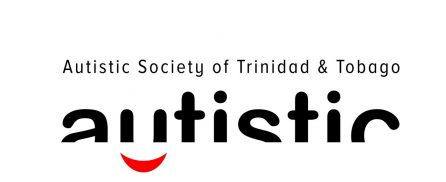



President’s address for the commemoration of World Autism Day 2nd April
THEME: Embracing Neurodiversity and Assistive Technologies
On behalf of our families I wish to congratulate the team of athletes who recently returned to T&T from the Special Olympics held in Abu Dhabi in the United Arab Emirates.
57 medals, what an incredible performance!
We sincerely hope that with increased funding and opportunities, our athletes will continue to excel in their diverse fields. It was truly a celebration of Neurodiversity, which recognizes that neurological differences are natural variations among people, rather than an indicator of a person’s ability to succeed. Indeed, we all think differently – not just because of differences in our culture or life experiences, but because our brains can be as diverse as the shades of our skin or the colours of our eyes.
And I quote Autism South Africa:
It is only through embracing diversity that we can create acceptance, and make the world a better place – having people who think differently in our places of work and social settings will only benefit all of society.
When we embrace and celebrate Neurodiversity, we create a space for acceptance of ALL persons in our society, including people on the autism spectrum. In order for our society to excel and reach its full potential, we all need to be valued and treated equitably, as individuals. People with autism have the right to be educated alongside their neurotypical peers, and given equitable opportunities for employment, housing and health, to name a few.
Today, as we commemorate the United Nations’ World Autism Awareness Day, which was designated on December 18, 2007 by the UN General Assembly, and was first observed in April 2008, we join with our global partners and the United Nations in highlighting the importance of “Assistive Technologies, and Active Participation”.
UN’s statement:
End of statement.
This year’s statement from the United Nations focuses on the importance of access to affordable, assistive technologies as a pathway to reducing and eliminating some barriers that prohibit people with autism from exercising their human rights and freedoms; it includes a lack of free expression, difficulties accessing information, unequal opportunities for education, and not being able to actively participate in political and community life.
I wish to remind you, that Trinidad and Tobago has signed and ratified the Convention on the Rights of Persons with Disabilities (UNCRPD), which acknowledges that any person with a disability has the right to use assistive technologies to freely express ideas, and communicate information as equal citizens in Trinidad and Tobago, and the world.
The UNCRPD Article 21 addresses: Freedom of expression and opinion, and access to information
It states:
People with disabilities have the right to express themselves, including the freedom to give and receive information and ideas through all forms of communication, including through accessible formats and technologies, sign languages, Braille, augmentative and alternative communication,mass media and all other accessible means of communication.
In our experience, assistive technologies can enhance quality of life through enabling access to information and offering additional forms of communication and support, which can promote autonomy, improve methods of learning, as well as facilitate access to digital and other social communities. Thanks to prior donations of iPads, our own members have benefitted from assistive technologies, which are used to improve communication during early intervention sessions at both of our parent support centres, here in D’Abadie, and in Point Fortin.
However, this is just a drop in the bucket, when we think about what might be possible if assistive technologies are made available to more people with autism, and are more fully integrated into our systems of learning, as tools for communication, and free expression. I urge you to consider ways in which our society might benefit from Neurodiversity in our workplaces, in our public sector, and even in our evolving political landscape. It is important to recognize that by placing barriers on people with autism, we are placing barriers on the future of our nation.
Today, as we join with other groups here and worldwide to commemorate World Autism Awareness Day, we wish to appeal to our nation, our communities, and our families to embrace Neurodiversity and the assistive technologies, which can support communication and active participation from people on the autism spectrum.
We encourage all citizens to become knowledgeable about autism; to become allies; and to advocate for the rights of people with autism. We urge the public and private sector to take a more active role, to ensure that people with autism are treated as equal citizens.
We welcome dialogue with all groups, individuals and ministries to address the urgent need for assistive technologies to be made more widely available and affordable.
I thank you.
Teresina Sieunarine
President
Autistic Society of Trinidad and Tobago
D’Abadie Headquarters: 646-5506/225-6808 / Point Fortin: 270-9224

